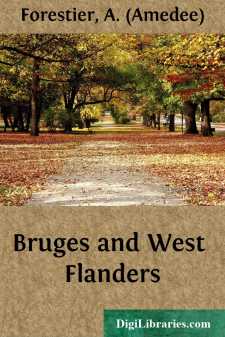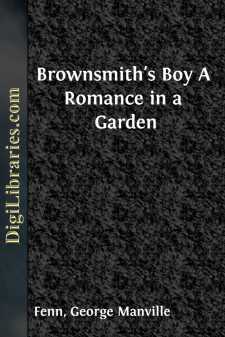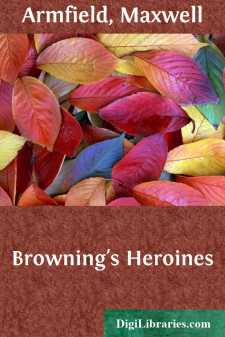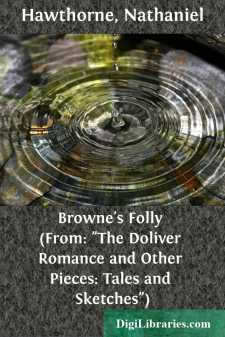Categories
- Antiques & Collectibles 13
- Architecture 36
- Art 48
- Bibles 22
- Biography & Autobiography 813
- Body, Mind & Spirit 142
- Business & Economics 28
- Children's Books 15
- Children's Fiction 12
- Computers 4
- Cooking 94
- Crafts & Hobbies 4
- Drama 346
- Education 46
- Family & Relationships 57
- Fiction 11828
- Games 19
- Gardening 17
- Health & Fitness 34
- History 1377
- House & Home 1
- Humor 147
- Juvenile Fiction 1873
- Juvenile Nonfiction 202
- Language Arts & Disciplines 88
- Law 16
- Literary Collections 686
- Literary Criticism 179
- Mathematics 13
- Medical 41
- Music 40
- Nature 179
- Non-Classifiable 1768
- Performing Arts 7
- Periodicals 1453
- Philosophy 64
- Photography 2
- Poetry 896
- Political Science 203
- Psychology 42
- Reference 154
- Religion 513
- Science 126
- Self-Help 84
- Social Science 81
- Sports & Recreation 34
- Study Aids 3
- Technology & Engineering 59
- Transportation 23
- Travel 463
- True Crime 29
Sort by:
CHAPTER I THE MARKET-PLACE AND BELFRY—EARLY HISTORY OF BRUGES Every visitor to 'the quaint old Flemish city' goes first to the Market-Place. On Saturday mornings the wide space beneath the mighty Belfry is full of stalls, with white canvas awnings, and heaped up with a curious assortment of goods. Clothing of every description, sabots and leathern shoes and boots, huge earthenware jars,...
more...
TO MY TEN BEST FRIENDS: Who are far wiser in their way and far better in every way, than I; and yet who have not the wisdom to know it Who do not merely think I am perfect, but who are calmly and permanently convinced of my perfection;—and this in spite of fifty disillusions a day Who are frantically happy at my coming and bitterly woebegone in my absence Who never bore me and never are bored by me...
more...
The Boy in the Garden. I always felt as if I should like to punch that boy’s head, and then directly after I used to feel as if I shouldn’t care to touch him, because he looked so dirty and ragged. It was not dirty dirt, if you know what I mean by that, but dirt that he gathered up in his work—bits of hay and straw, and dust off a shed floor; mud over his boots and on his toes, for you could see...
more...
INTRODUCTION LIFE OF BROWNING Robert Browning was born in Camberwell, London, May 7, 1812. He was contemporary with Tennyson, Dickens, Thackeray, Lowell, Emerson, Hawthorne, Darwin, Spencer, Huxley, Dumas, Hugo, Mendelssohn, Wagner, and a score of other men famous in art and science. Browning's good fortune began with his birth. His father, a clerk in the Bank of England, possessed ample means for...
more...
by:
Maxwell Armfield
PREFACE When this book was projected, some one asked, "What is there to say about Browning's heroines beyond what he said himself?"—and the question, though it could not stay me, did chill momentarily my primal ardour. Soon, however, the restorative answer presented itself. "If there were nothing to say about Browning's heroines beyond what he said himself, it would be a bad...
more...
CHAPTER I ENGLISH POETS, FRIENDS AND ENTHUSIASMS To any one casually trying to recall what England has given Robert Browning by way of direct poetical inspiration, it is more than likely that the little poem about Shelley, "Memorabilia" would at once occur: I"Ah, did you once see Shelley plain,And did he stop and speak to youAnd did you speak to him again?How strange it seems and new!...
more...
by:
Henry Jones
CHAPTER I. INTRODUCTION. "Grau, theurer Freund, ist alle Theorie, Und grün des Lebens goldner Baum." (Faust.) There is a saying of Hegel's, frequently quoted, that "a great man condemns the world to the task of explaining him." The condemnation is a double one, and it generally falls heaviest on the great man himself, who has to submit to explanation; and, probably, the last...
more...
MY DEAR COUSIN:âI should be very glad to write a story, as you request, for the benefit of the Essex Institute, or for any other purpose that might be deemed desirable by my native townspeople. But it is now many years since the epoch of the "Twice-Told Tales," and the "Mosses from an Old Manse"; and my mind seems to have lost the plan and measure of those little narratives, in...
more...
by:
Jack London
BROWN WOLF She had delayed, because of the dew-wet grass, in order to put on her overshoes, and when she emerged from the house found her waiting husband absorbed in the wonder of a bursting almond-bud. She sent a questing glance across the tall grass and in and out among the orchard trees. "Where's Wolf?" she asked. "He was here a moment ago." Walt Irvine drew himself away with a...
more...
BROWN WILLIAM This ballad was written in consequence of the execution of William Christian, generally called William Donn, or Brown William, from the darkness of his complexion, who was shot at Hango Hill, near Castletown, in the Isle of Man, shortly after the Restoration, for alleged treason to the Derby family, who long possessed the sovereignty of Man. . . . The ballad of “Brown William,” which...
more...











